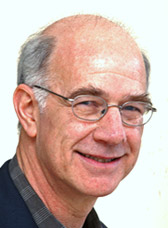Michael Burawoy is one of the world’s leading sociologists and ethnographers of work. Studying industrial workplaces through participant observation—in places as diverse as Zambia, Chicago, Hungary, and Russia—he has sought to develop general theories about the nature of human labor, the despotic operation of the industrial workplace, and the relative ability of workers to resist and consent to their shop floor subordination and the imperatives of production. He is a professor of sociology at the University of California at Berkeley.
Over his long career, Burawoy has examined the dynamics of human labor under industrial capitalism, state socialism, colonialism, and postcolonial and postsocialist orders, often in comparative perspective. One of his earliest books, Manufacturing Consent (University of Chicago Press, 1979), based on an ethnographic study of a Chicago machine shop, examined how working class consent under industrial capitalism was organized by the production process itself. He followed this up with similar ethnographic work in factories across the Socialist Bloc, and extended his argument comparatively in The Politics of Production (Verso, 1985), insisting (contra the Marxist tradition) that “the arena of production contains political and ideological institutions as well as a purely economic organization.” In The Radiant Past (University of Chicago Press, 1992), Burawoy extended his ethnographic analysis of the workplace over time, examining changing factory regimes as socialist production transformed into capitalism after 1989. This is a recurring technique for Burawoy, who makes a habit of revisiting former ethnographic sites in order to assess change. More recently, he has explored how the university as a workplace has sociologically reproduced certain kinds of intellectual production.
Methodologically, Burawoy remains an articulate defender of what he calls the “extended case method.” If you want to understand how human beings live, he contends, then you should go out into the field and ask them—repeatedly, over time, and in different contexts. Initially developed in a co-authored monograph, Ethnography Unbound (University of California Press, 1991), he argued for the importance of participant observation across all social science disciplines. His most recent monographic work, The Extended Case Method (University of California Press, 2009), shows how ethnographers need to both carry theory with them into the field and develop general theories about social life based on their observations. Using this method in his own case studies, Burawoy is probably the only living ethnographer who can claim to have studied on the ground what he calls the “four great transformations” of our epoch—decolonization, the construction of socialism, the decline of Fordism, and the collapse of socialism. More recently, he has turned his discerning ethnographer's eye inward, to offer a critical sociological account of the functioning of the research university under contemporary capitalism.
Demonstrating his commitment to engaging with the world, Burawoy has challenged sociology as a discipline to embrace “public sociology,” a form of inquiry that seeks to make sociological work not only accessible to nonacademic audiences, but to include members of that population in the processes of producing knowledge collectively.
Michael Burawoy has been President of the American Sociological Association and the International Sociological Association.


